What makes a truly awful metal album? It’s not just a lack of riffs, awful production, or quarter-assed vocal takes. Most of these records suffer from overdosing on compromise, whether it’s hopelessly chasing a trendy sound or a failure to age gracefully; others have visions more realized yet too noxious to raise the horns with any pride. It shouldn’t shock you that most of these albums were released in the late 90s to the early 2000s – metal’s crisis years when older bands couldn’t make sense (or were outright hostile towards) nu-metal and what was left of alternative rock, and before the MTV2 Headbangers Ball revival both spread metalcore around the world and reignited a lot of older thrashers’ careers. Those really were the Dark Ages.
Metal should make you want to sin for the greater good, and none of these records do that.
Before we proceed, we should note which usual suspects we paroled. St. Anger and Lulu did not make the cut: when you’ve listened to enough shitty black metal demos, Lars’ faux-trash clang sounds downright heavenly, and in the case of the latter, it’s a bigger swing than any of their contemporaries have made in the past decade or two. Tom G. Warrior will likely decry Cold Lake on his deathbed, yet we shall not slander it – it’s still a Celtic Frost album at its core, even with its glam trappings. Illud Divinum Insanus is easily Morbid Angel’s worst album thanks to its electronic misdirections, but in reality, there’s only a couple truly terrible songs and the rest is Florida-DM-by-numbers. Perpetual fill-in Tim “Ripper” Owens makes an appearance, but not for his two albums as Rob Halford’s replacement in Judas Priest.
Dare to entertain what we did choose?
[embedded content][embedded content]
12. Octagon, Bathory (1995)
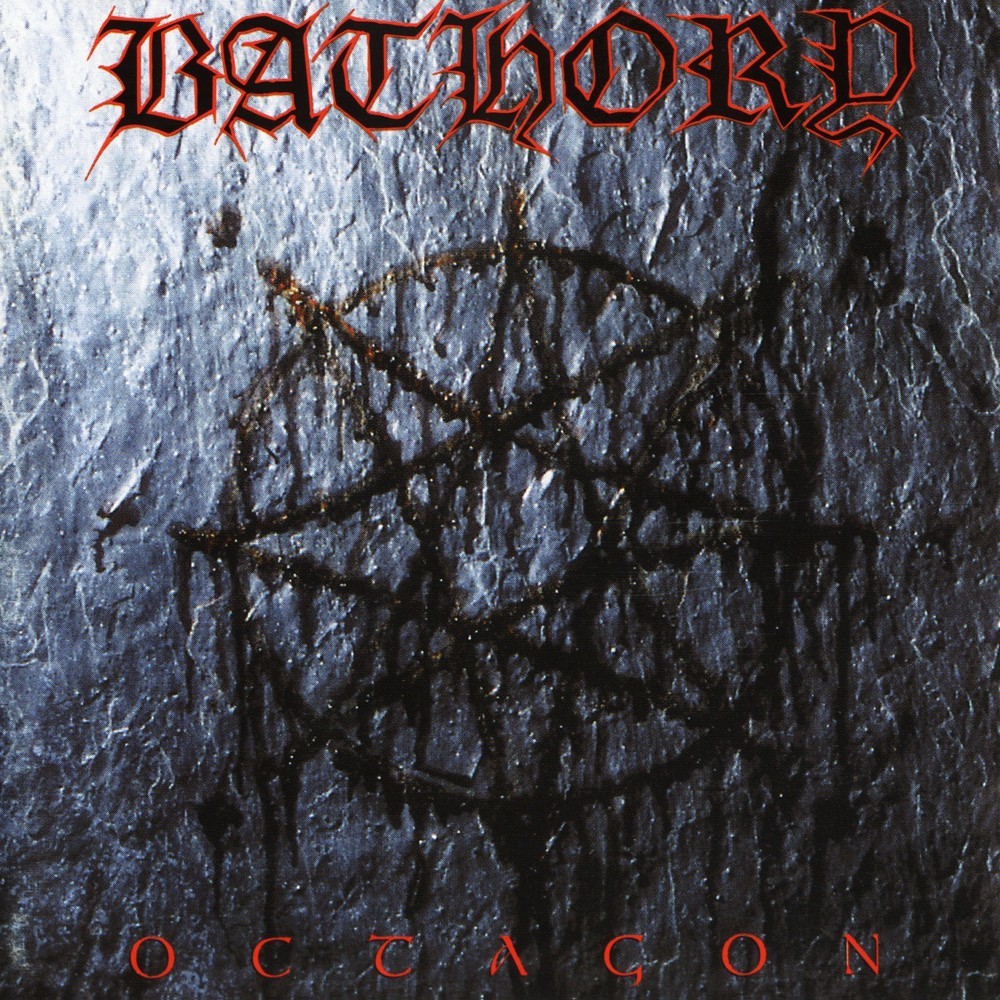
Bathory’s regression from triumphant Viking metal to primitive thrash was a fun trend-bucker in Requiem, but Quorthon took a terrible turn with Octagon. Oddly, for an album deliberately against fashion, he aims for a streetwise Phil Anselmo tone in his lyrics but doesn’t nail it at all. He spouts off social ills in “Century” like a black metal “We Didn’t Start the Fire,” and “Born to Die” is cut-rate 80s Satanism at a time when Marilyn Manson was the new antichrist. Their classic self-titled debut’s raw production set the stage for black metal (for better or for worse) – this just sounds tinny and limp, velocity without weight. No wonder their next release was a shelved album from the late 80s!
11. Metal Black, Venom (2006)
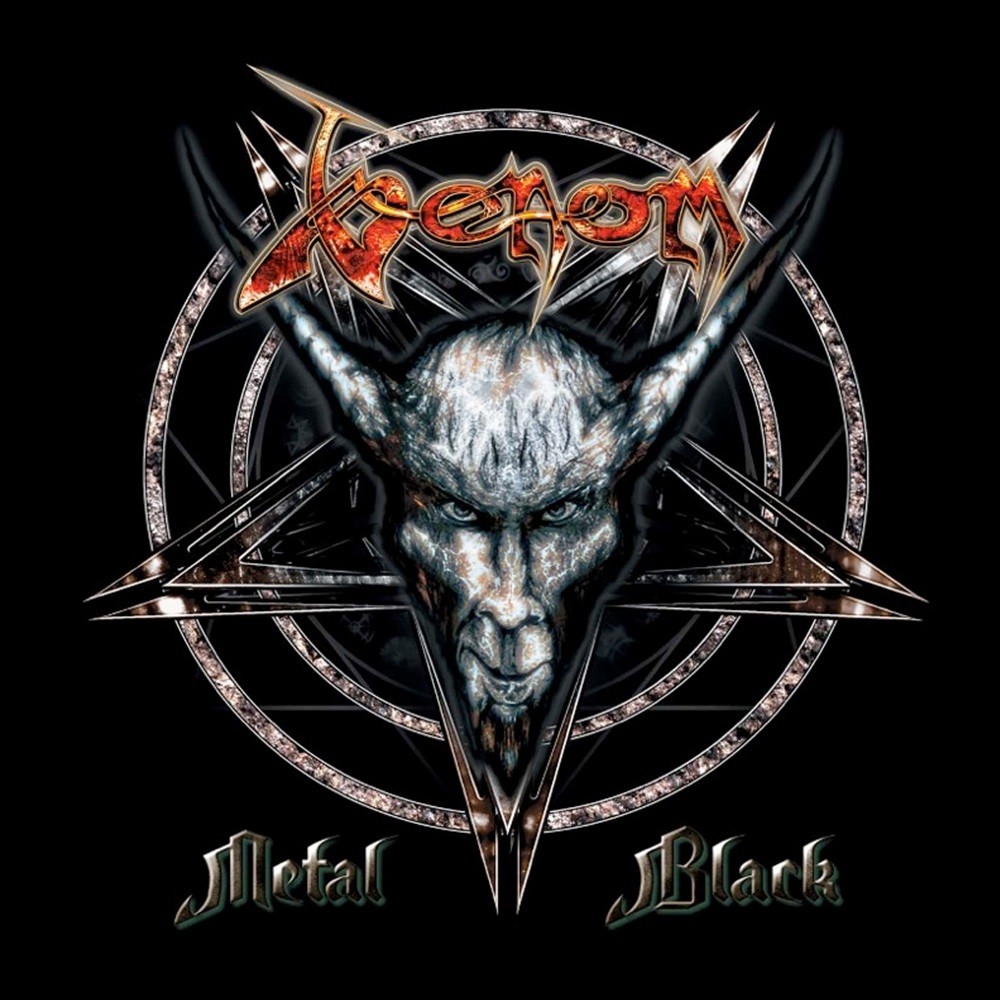
Nearly every veteran metal band reaches some level of self-parody, but only Venom could make an album that sounds like Green Jellÿ making a Venom album. They must have thought they were real slick calling their album Metal Black, thinking we wouldn’t notice what a dumb idea it is. Overly compressed, overly forced, and overly long, it’s an insulting inversion of their classic second record. “Teacher’s Pet” was beyond juvenile but fun – nothing joyous comes from this near-hour-long agony.
11. Infestissumam, Ghost (2013)
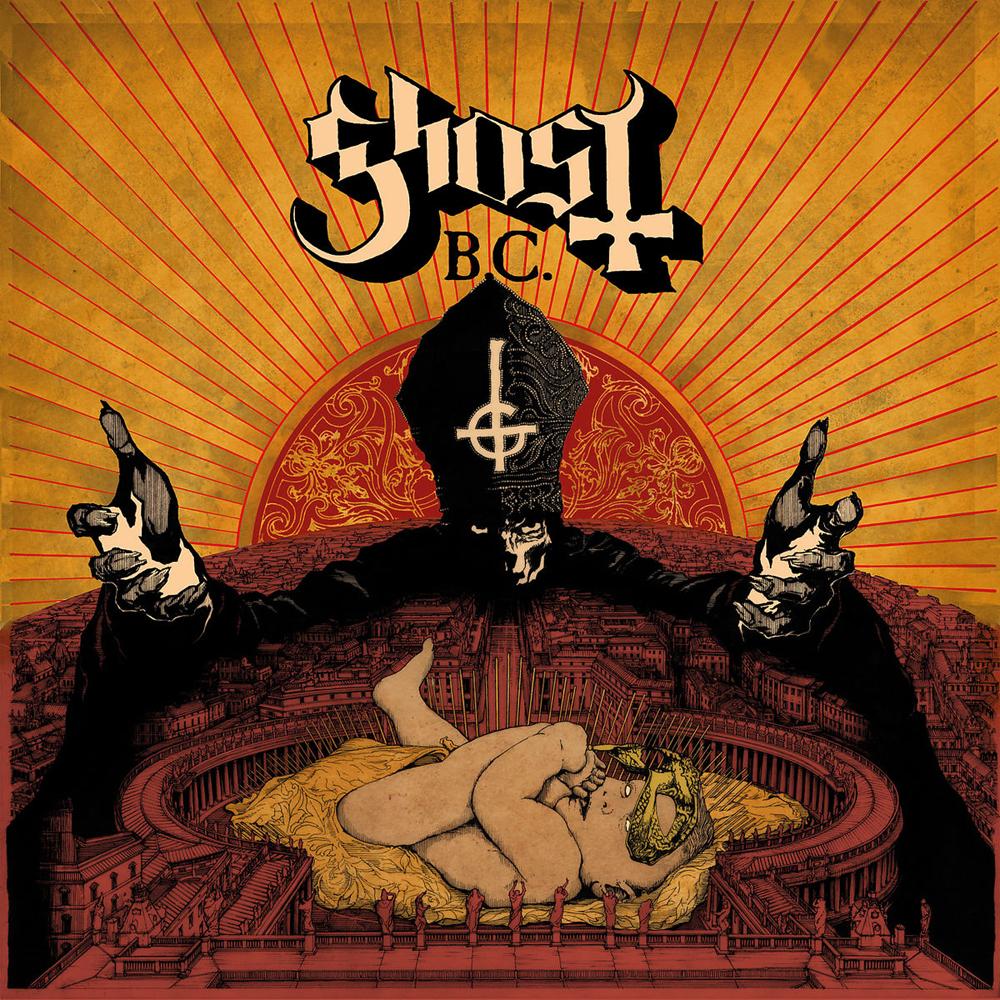
Ghost are a popular target amongst curmudgeonly old (and old at heart) bros, and it’s not entirely deserved. You want a band that sounds like old bands but don’t want more people to listen to them? Not only that, Darkthrone’s Fenriz, a man stead-fuckin-fast in his ancient metal ways, was one of their earliest supporters. Ghost’s second album Infestissumam was their big entrance to the mainstream, and it was not a great first impression. Their debut’s Mercyful Fate-via-BOC vibe is flattened to homogenous guitar strums and organ drawls, especially in “Secular Haze,” a pale imitation gone ghoulishly white. There are no roses with bloodstained thorns or devilish communion wine; all that’s left is metal done 2D. An album should not feel like a chore, and yet it drags while not doing all that much. Ghost’s albums after have all been better, they are still marked by a fatal flaw: Forge cannot carry himself over a whole album. He occasionally puts out a slammer, but putting out a great album front to back still eludes him.
9. Supercharger, Machine Head (2001)
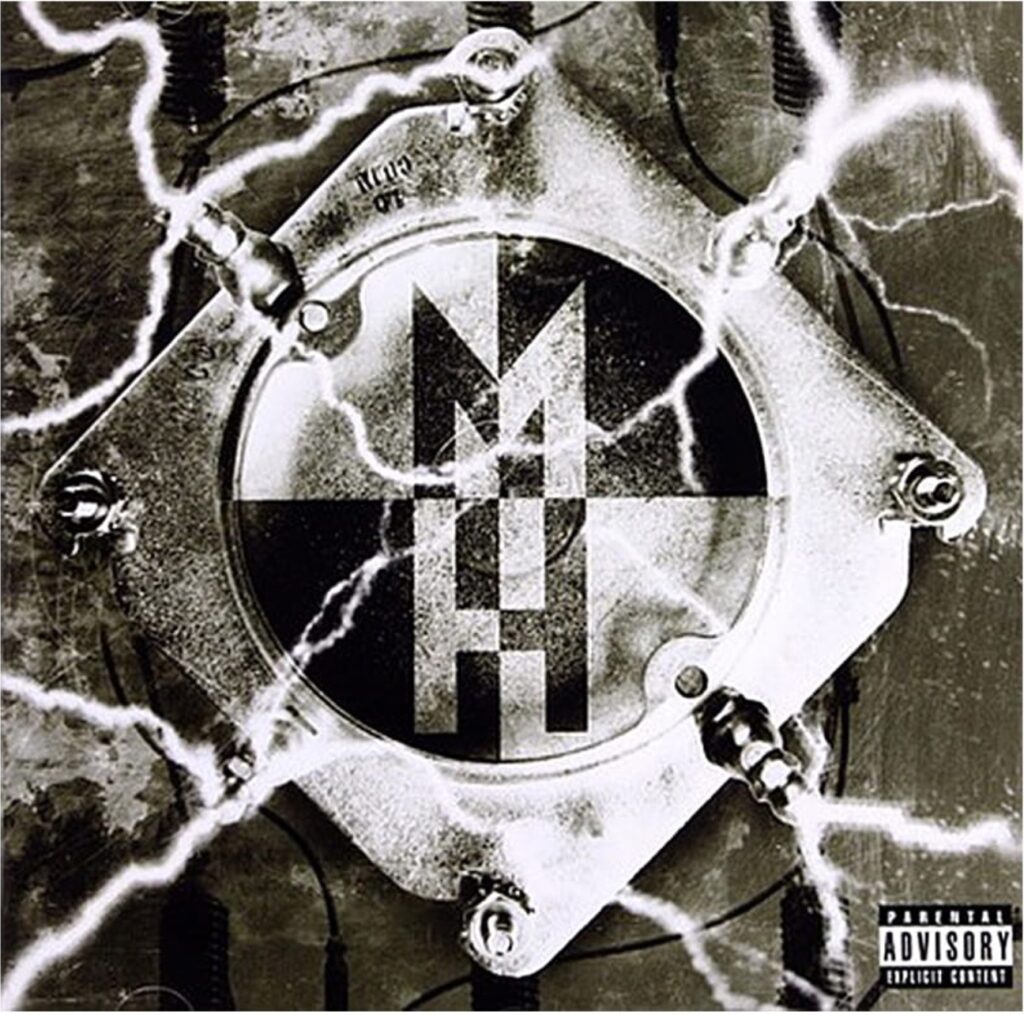
Machine Head tried to catch up with the nu-metal they helped foster on Supercharger, and the results are atrocious. They sound both in awe of what led after them and a bit too desperate to get in on the action, a thirst that quenches no one. While this cursed some of their peers at Roadrunner (Fear Factory’s “Back the Fuck Up” is best left forgotten), nobody ran into the wall quite like them, limp wah-wahs and tired bounce riffs akimbo. “Crashing Around You” is a textbook 2000s radio single, aggression drowning in self-pity. Supposedly its prospects were doomed thanks to 9/11, but if you’ve actually listened to it, over-sensitive radio programmers aren’t to blame here. Robb Flynn gets away with doing a Tarzan intro on “American High” because his quasi-rapping later on is what people think of when they bag on nu-metal. Say what you will about Fred Durst and Jonathan Davis, they owned their styles. Worse, “Blank Generation” rallies against artifice while contributing no substance of its own – has anything aged as poorly as concern trolling plastic surgery? The only cure for that song is to listen to Hole’s “Celebrity Skin” and/or consume as much Angelyne content as you can. Sincere artifice always trumps artificial sincerity.
[embedded content][embedded content]
8. Near-Death Experience, Cro-Mags (1993)
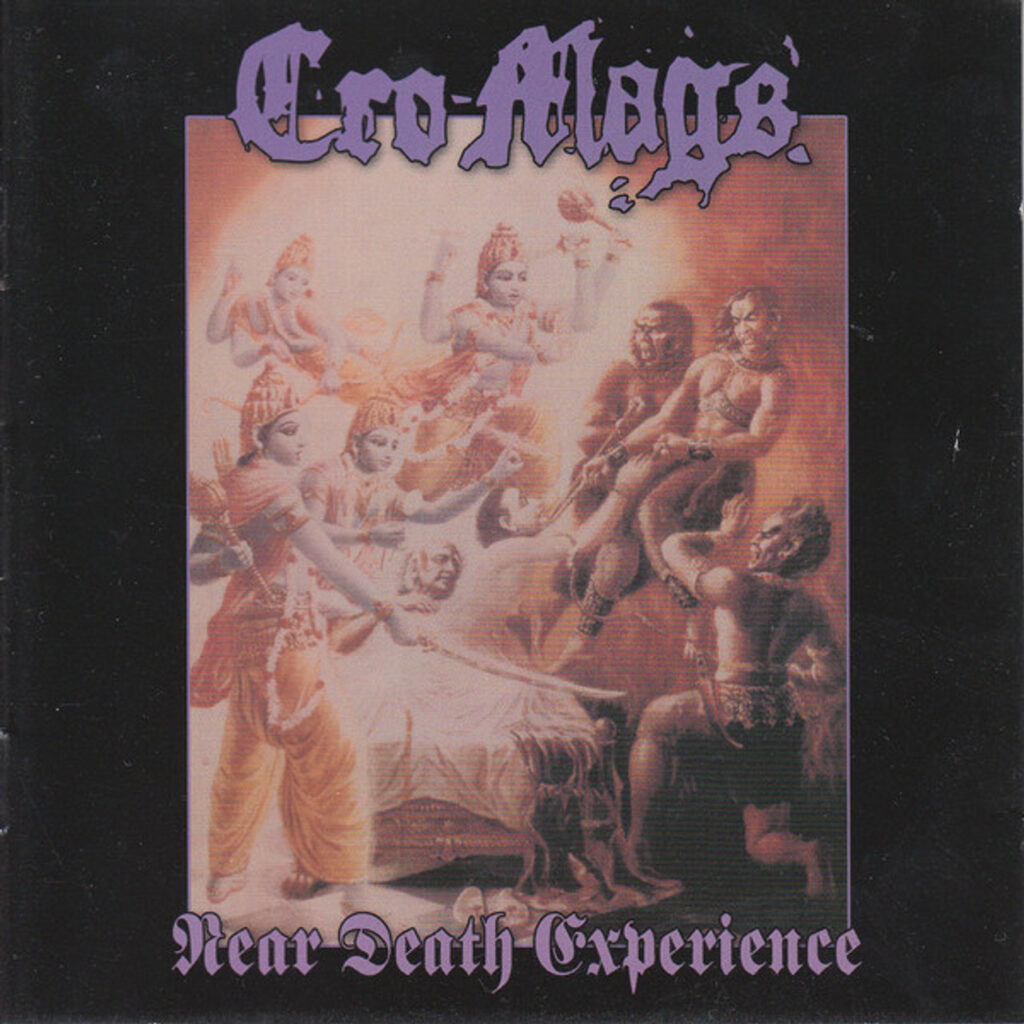
New York hardcore pioneers Cro-Mags’ first three albums were hugely influential on crossover thrash – most notably, their second album Best Wishes makes up a third of Power Trip’s DNA. Their songwriting grew stale by the time Near-Death Experience, their fourth album, came around, though that’s hardly the album’s biggest sin. If there’s an album completely tanked by its vocals, it’s this one. John Joseph cannot do highs, at all – to say he flew too close to the sun would imply he could get that close in the first place. “War on the Streets” has a truly bizarre vocal performance, where he sounds like a fast-talking Blitz Ellsworth trying to impersonate Geoff Tate. Never has a singer had such disregard for the rhythms behind him. Joseph does get a little of his Age of Quarrel rumble back for “Death In the Womb,” an anti-abortion song…HMMM. Hardcore fans like to think they’re above metal fans – and if we’re being honest, they’re not always wrong – even when they’re influenced by metal, and this is a reminder that metal does not have the monopoly on chuds.
7. Virtual XI, Iron Maiden (1998)
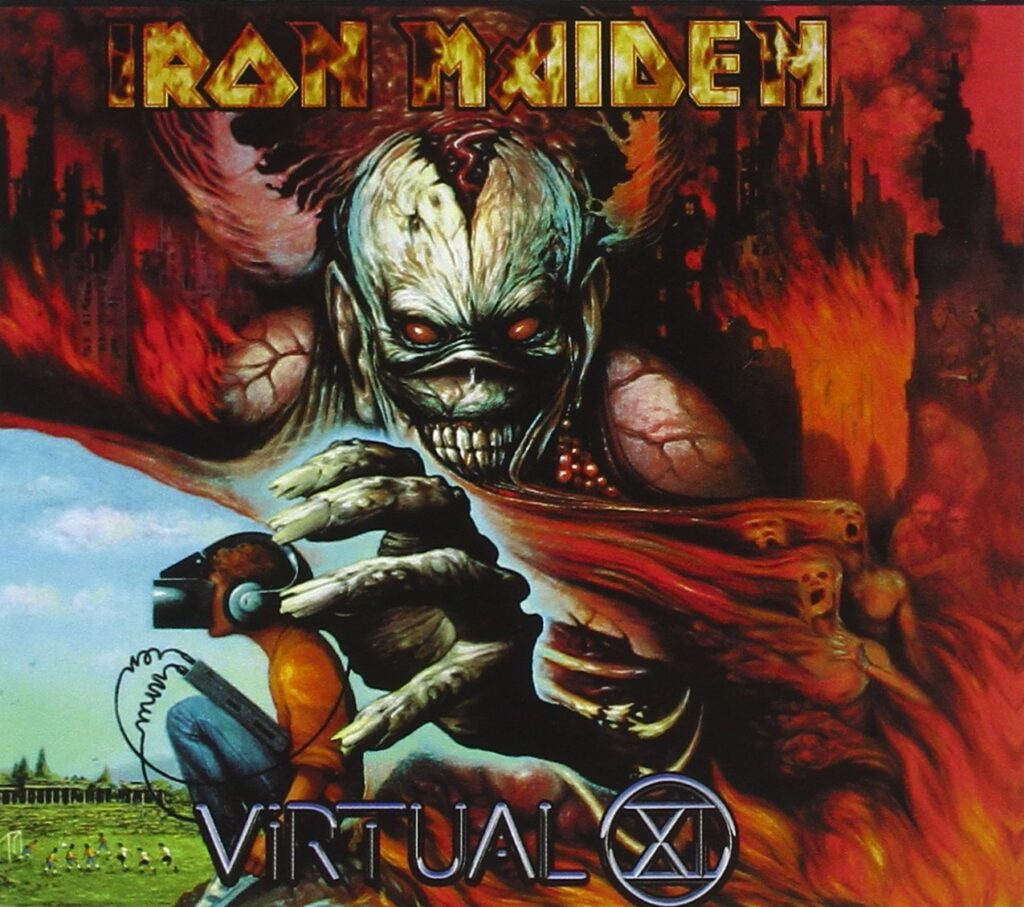
Virtual XI is like Near-Death Experience in that the vocals and music do not mesh, yet neither elements on their own are particularly bad. Blaze Bayley is unfairly shat on – the real culprit behind Maiden’s lagging quality in the 90s is Steve Harris’ shaky pen – yet he’s too down to earth for Maiden’s material. Even he can’t sell “Futureal,” a song he co-wrote that would have been better on Somewhere in Time’s techno-prog expedition. It’s almost as though Blaze is just being dragged along, rather than really part of the band. Virtual XI is the most cynical Maiden record, even more so than the darker The X Factor, because it was a calculated attempt to bring a more Maiden-like experience without all the right tools. It’s just so tragic.
6. Assassins: Black Meddle Pt. I, Nachtmystium (2008)
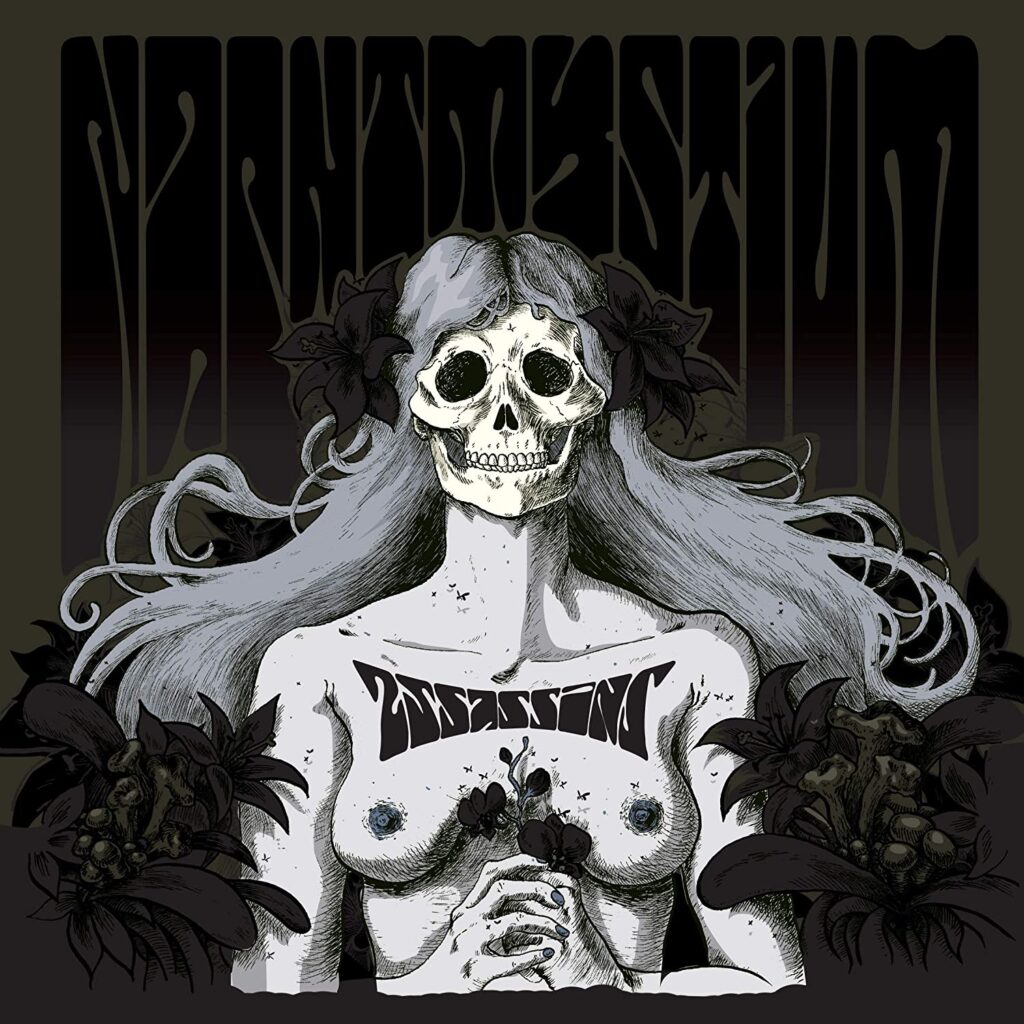
Going against the norm is how you succeed as a black metal band: the gushing narratives and glowing reviews write themselves. Making traditionalists mad alone does not a great album make, and Nachtmystum’s Assassins: Black Meddle Pt. I fooled many a self-satisfied metal quasi-aficionado into thinking a piss puddle is Lake Superior. Most of the album’s purported psych influence doesn’t come through, sounding like rote black metal with 70s electronics grafted on in select spots. That’s not mind-bending. The guitar work doesn’t pick up the slack: “Ghosts of Grace” has leads dying for air, begging for thrust, and “Code Negative” is Mastodon’s softer side without finesse. “One of These Nights,” an awful tribute to Pink Floyd’s “One of These Days” with no axe-brandishing menace, gives up the game upfront: this is a fraud. What’s most sad is some of Chicago’s best metal talents contributed: saxophonist Bruce Lamont is the longtime leader of the amazing jazz-metal combo Yakuza, and Chris Black, who plays keyboards on here, leads High Spirits, one of America’s greatest unsung metal bands. Listen to their stuff instead.
5. We’ve Come For You All, Anthrax (2003)
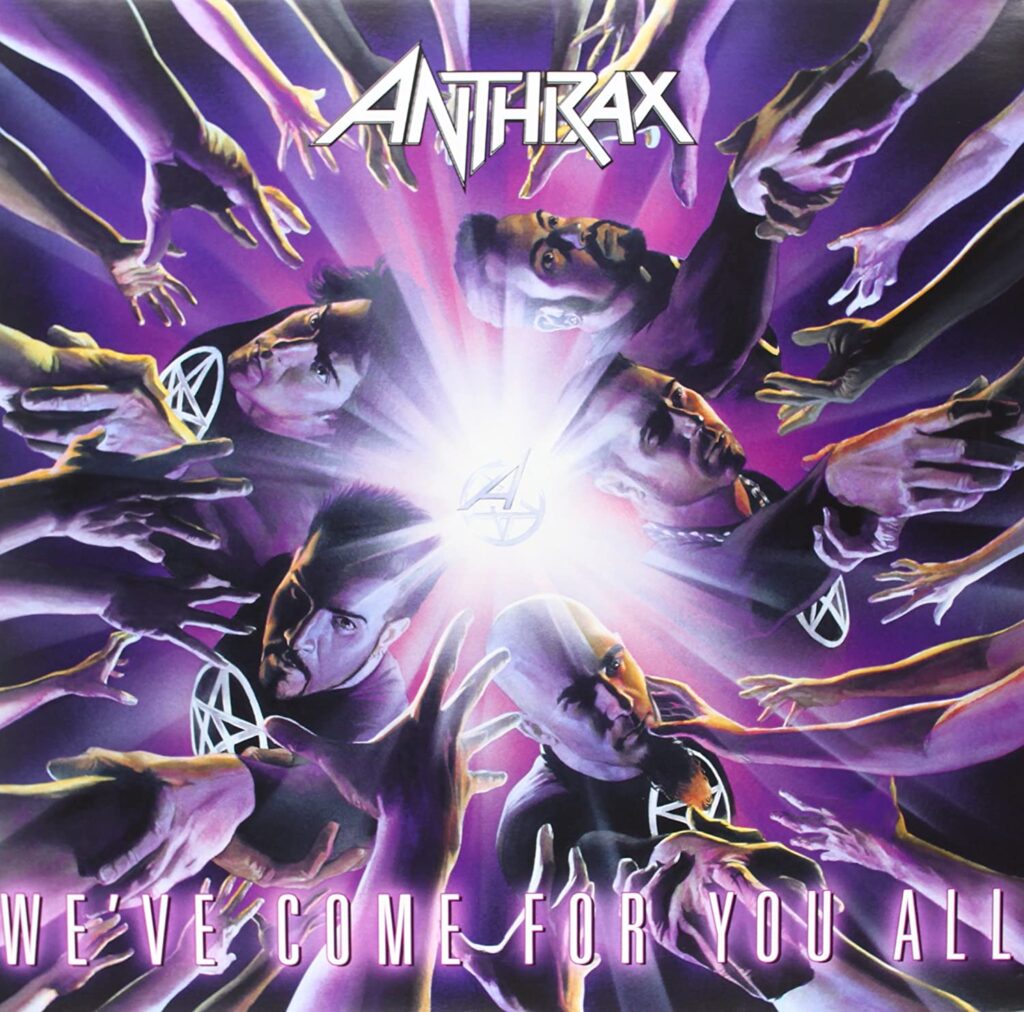
Anthrax toured and partied with Pantera in the 90s, which explains both the bastardized groove metal in their late 90s albums and how Charlie Benante will fill Vinnie Paul’s role in the upcoming Pantera “reunion.” (That’s a whole different thinkpiece.) We’ve Come For You All was supposed to be a “comeback” albums of sorts and ends up being a grueling mish-mash, neither capturing their 80s glory nor offering an interesting way forward. They throw everything at the wall and none of it is inspired – not quasi-revolution (“Taking The Music Back”), not cheap horror romps (“What Doesn’t Die”), and especially not “Cadillac Rock Box,” whose machine-lusting ways and sub-Hagar fetishism are uncharacteristic for Anthrax. Leadoff single “Safe Home” is the worst offender, going for meatheaded tenderness they previously clowned on “N.F.B. (Dallabnikufesin).” John Bush is both the man for the job – generic post-grunge warbler is a role he fills well – and a tragic victim, as he is capable of so much more. (You should listen to Armored Saint.) “The mind can atrophy such mediocrity,” leads off Bush on closer “W.C.F.Y.A.” – you’re telling us, bro! Even if you saw Joey Belladonna’s eventual return as opportunistic, can you really blame ‘em?
4. Graveyard Classics, Six Feet Under (2000)
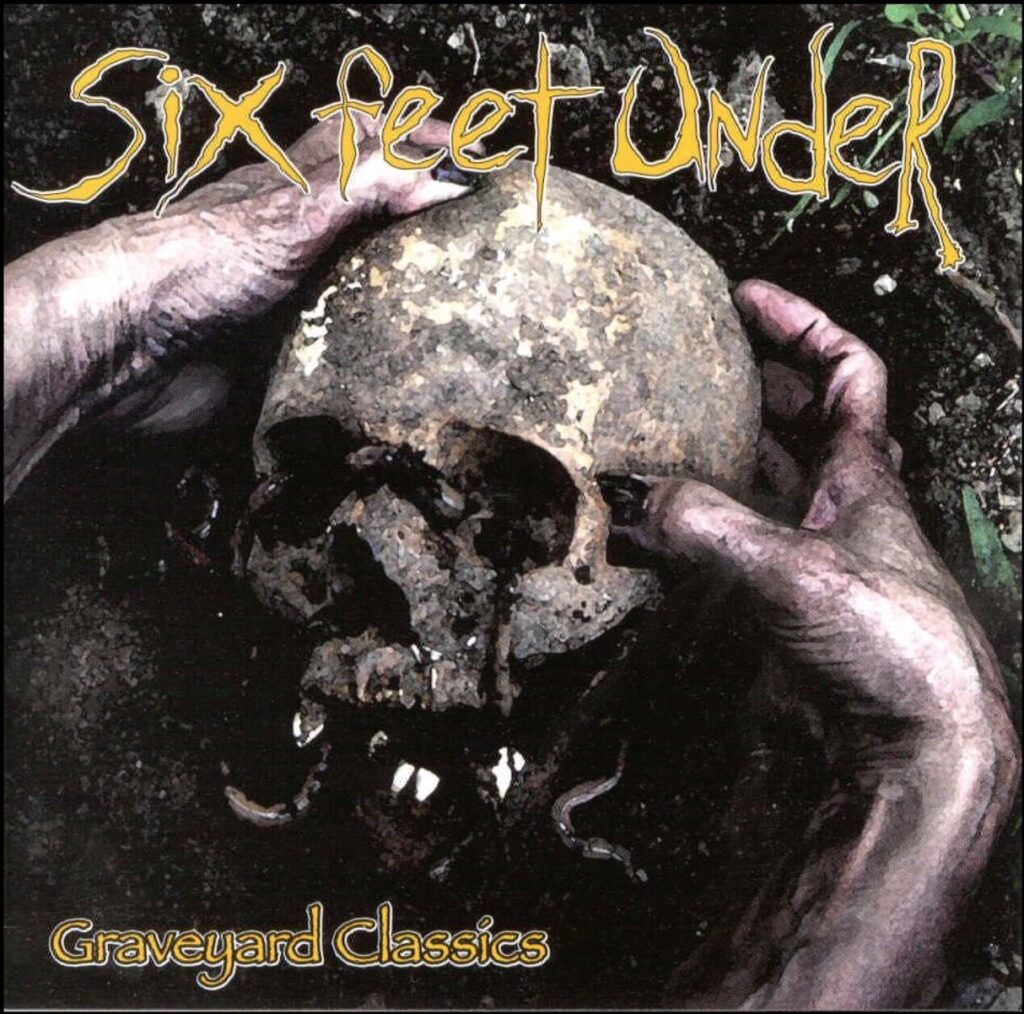
The covers album is a classic “we’re outta gas” move, but leave it to Chris Barnes and Six Feet Under to butcher that format and thus expand the paradigm of shittiness. You think you’ve heard the worst “Smoke on the Water” or “Purple Haze,” but you haven’t heard them hacked by a band with no sense of groove (Bill Ward needs to condemn “Sweet Leaf,” the lack of swing is deafening) or respect for the songs’ personalities. Barnes’ vocal limitations really come through when you know exactly what he’s saying – “holding the mic too close” is his raison d’etre. “Son of a Bitch” by Accept’s red-hot contempt turns into a pathetic bar argument in their hands. We hear you yelling and we can’t enjoy our Jagerbombs, guys. Their rendition of Dead Kennedys’ “California Uber Alles” not only smothers Jello Biafra’s cynical humor in a botched murder, it also set the stage for “Amerika The Brutal,” Six Feet Under’s attempt at a death metal “American Idiot” a few years later. Graveyard Classics is not merely a covers record, it’s a Lament Configuration made of other peoples’ songs.
Worst of all, this spawned three (3!!!) sequels, each horrendous but with their own minor redemptions. 2 covers Back in Black in its entirety and is the only one that delivers on the wasted at Wacken karaoke ideal, and III has interesting song choices that invigorate the band, even if they can’t cover up Barnes’ atrocious vocals. The fourth edition, The Number of the Priest, is an infected graft of half Maiden, half Priest songs. Basically, a weekend suburban rock bar with even more rancid rubbery wings. Yet, you can hear Barnes’ maybe recognizing his own hubris in gargling through “The Evil That Men Do,” and there’s a hint of sadness in him singing “I was a young man full of hopes and dreams” from “Stranger in a Strange Land.” (Somewhere in Time is the best Maiden album, so this choice is extra offensive.) It’s the original that has its own spoiled reputation, and for good reason.
3. eMOTIVe, A Perfect Circle (2004)
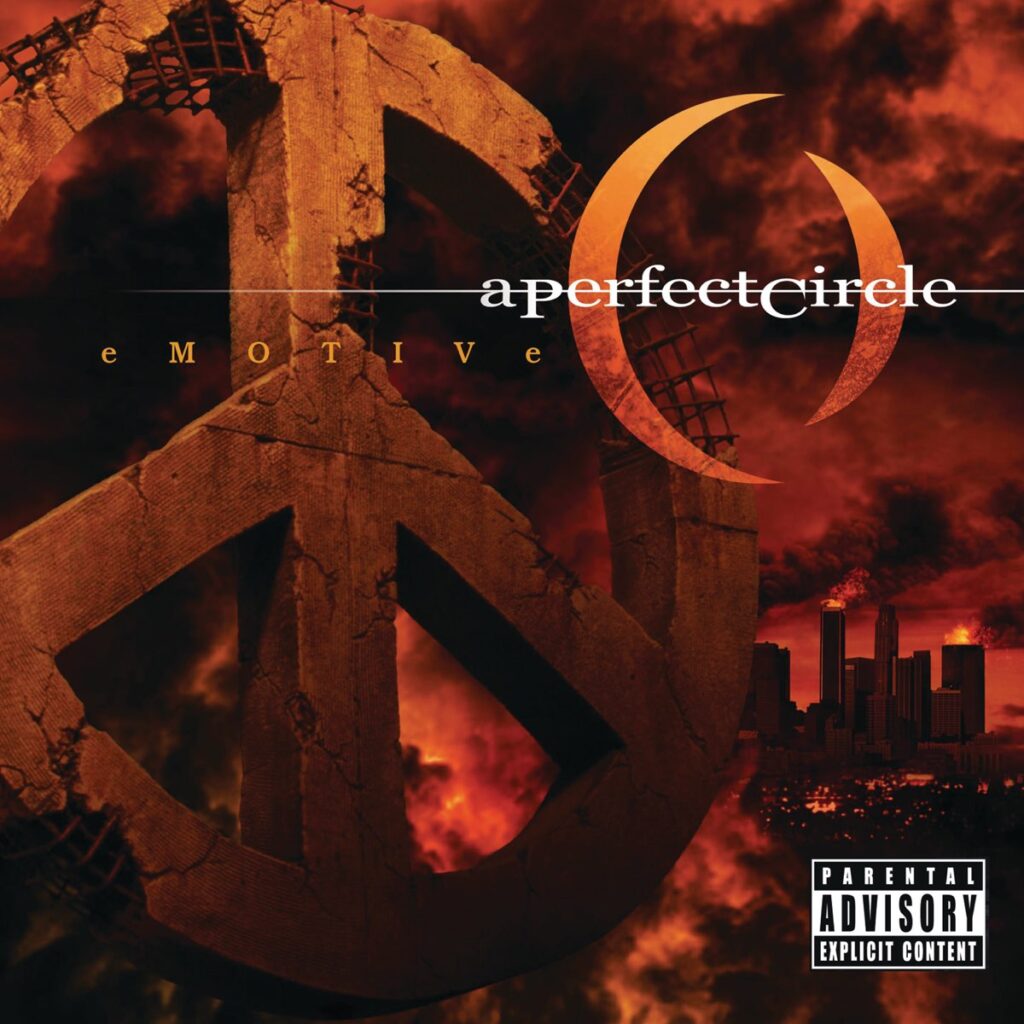
Graveyard Classics does not have the lock on covers records on this list. Jesus fucking Christ.
Are you looking for “What’s Going On” minus warmth and soul? Would you prefer Black Flag’s “Gimmie Gimmie Gimmie” as a turgid trial of patience? Does the idea of a “People are People” that you can’t dance inside a fog machine endtimes strike your fancy? Do you think Bill Hicks would have wanted to hear another “Imagine” cover? A Perfect Circle’s eMOTIVe is your new favorite record. Released just before the 2004 election, this collection took protest songs and sucked all the vitality out of them, leaving behind bare vibes that don’t even suffice as liberal window dressing. A Perfect Circle were doing great on the darker edges of alternative rock, so this album feels especially unnecessary. It’s like background music that’s demanding you to “do something,” not really getting into what “something” is. A lot of these songs could be those bland, moody, dark for dark’s sake covers you hear in almost every movie trailer now. “Ahead of their time” is a derogative after all.
[embedded content][embedded content]
2. Risk, Megadeth (1999)
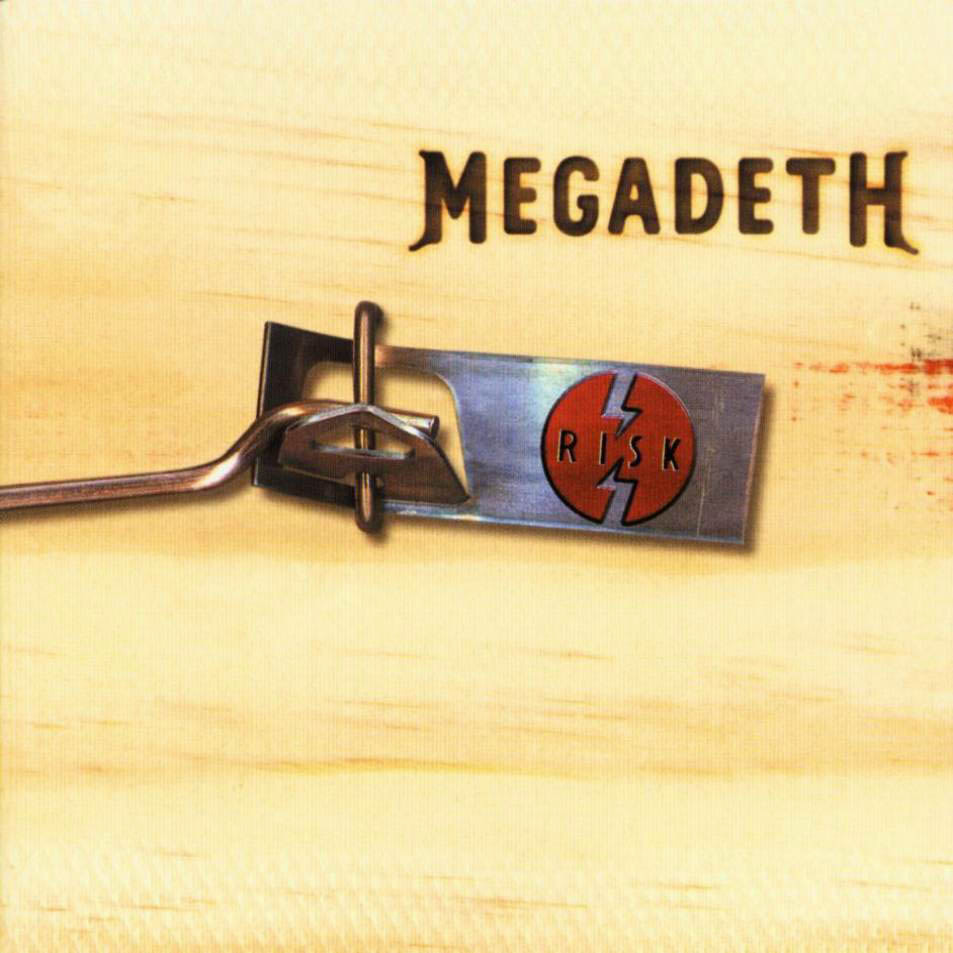
In our “The 50 Worst Songs by Otherwise Great Artists” list, we bemoaned Megadeth’s “Crush ‘Em” as the nadir in metal veterans grafting onto industrial rock, one of the 90s’ most unfortunate trends. Turns out, Risk is the nadir of Megadeth as a whole. You should not listen to a metal album and think “Dave Matthews did this better on ‘I Did It.’” (Guilty as charged.) Dave Mustaine and co. actually had one up on Metallica with Cryptic Writings, a much better adaptation to alternative than Load and Reload – this album does not have a clear audience in mind. “Crush ‘Em” at least has a wisp of edge, the rest of Risk has none. Had “The Doctor is Calling” and its confused goth-metal found a life in waiting rooms, euthanasia would have been on the legalization fast-track. “Breadline” and “Ecstasy” are secular songs that also sound like the most banal CCM ever made – choruses with crescendos that fall flat, auto-pilot soloing, and an overwhelming, yet light air of slog. Even its original cover would have been better suited for Barenaked Ladies, and shit, they needed something half as hooky as “One Week” to save this. You can argue that Metallica fell the furthest out of the Big 4, but Risk is proof Megadeth by far fell the lowest.
1. The Glorious Burden, Iced Earth (2004)
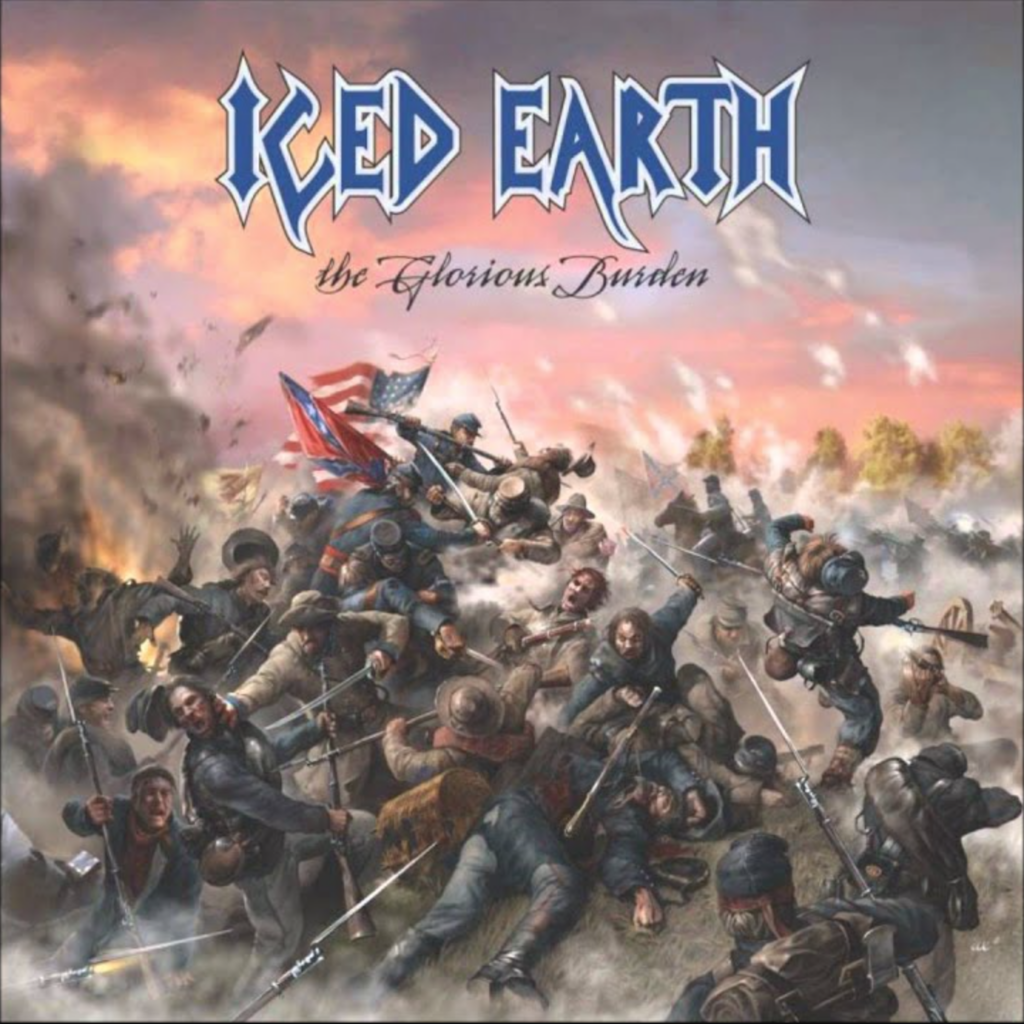
9/11 broke Iced Earth. Vocalist Matt Barlow cut off his flowing red hair and quit the band to become a cop, and what’s less metal than becoming an oppressor? Jon Schaffer fashioned himself a born-again patriot and decided to make it everyone’s problem with The Glorious Burden, a monument to American bullshit that’s also a cautionary tale in how aimless rebellion, pretty common in metal, can go horribly askew.
Schaffer saw how mainstream country was exploiting 9/11 and decided he should be a sensitive badass too. “When The Eagles Cries” is Iced Earth’s attempt at their own “Where Were You (When the World Stopped Turning),” and as a result created one of the worst metal ballads in history. Mopey schlock has never been so disrespectful. Right after, “The Reckoning” is a speed-metal “Courtesy of the Red White and Blue,” galloping and screeching through boilerplate jingoism without a line as memorable as “we’ll put a boot in yer ass, it’s the American way.” Not that better lyrics would really redeem a horrible outlook, anyhow. Those two songs alone are so excruciating it’s not worth delving into the 30-minute suite about Gettysburg. You’ve taken too much already. For fuck’s sake, this album STARTS with “The Star Spangled Banner,” a move so corny that some European editions omit this track.
The stench is intoxicating: Tim “Ripper” Owens, fresh out of Judas Priest, gives one of his best vocal performances, and even if Schaffer is too tethered to galloping thrash rhythms, he at least knows their utility. This is the most musically competent album on this list, which makes it even worse. Burden unwittingly proves that fascism’s temptation isn’t so easily brushed off – in spite of this as their most polarizing album, way too many metalheads buy into this horseshit. “Declaration Day” and “Valley Forge” would be pretty killer songs if they weren’t in service of making headbangers throw the horns for American hegemony. Badass war imagery can be used as an anti-war statement (see: Bolt Thrower), and Iced Earth is not interested in that at all. They made an album for bootlickers, by bootlickers. Barlow’s departure begs the question: is it more honorable to become the boot?
The Glorious Burden was the beginning of the end for Iced Earth: Schaffer fell further into right-wing extremism over the years and finally graced the front pages last year not as a heavy metal hero, but for his involvement in January 6 as part of the Oath Keepers. He’s a wannabe tyrant who deluded himself into thinking he was fighting against tyranny, instead of becoming a sacrifice for the bigger apparatus. He just might be the biggest clown in metal, and The Glorious Burden is his joke of a legacy.
[embedded content][embedded content]
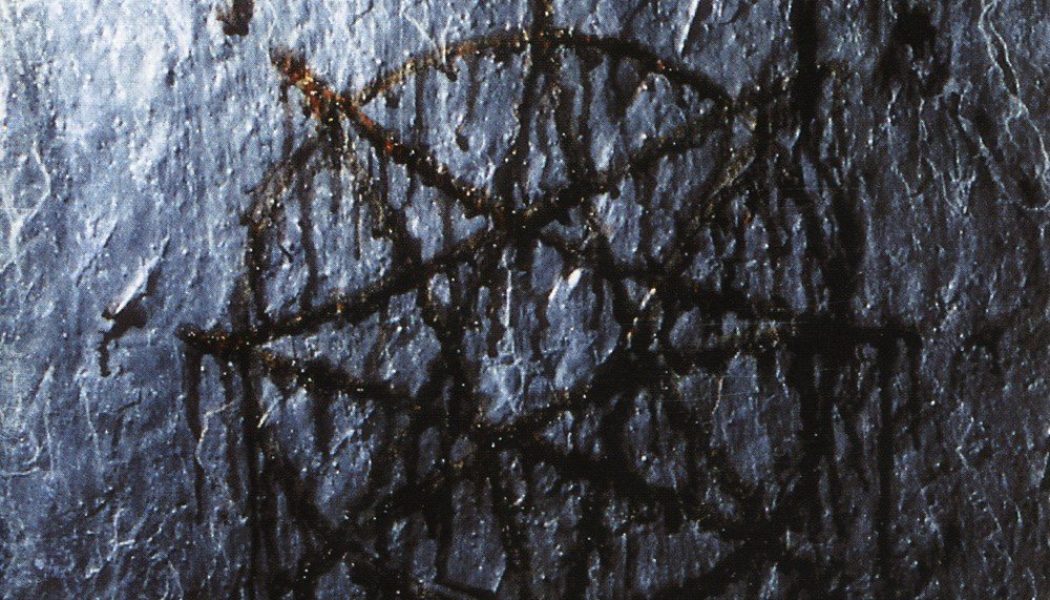






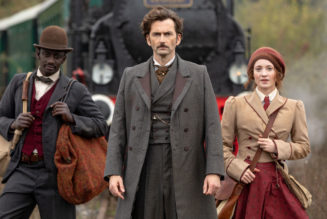
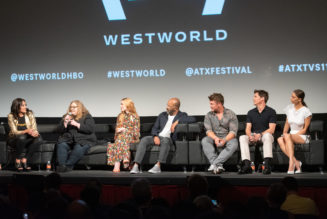
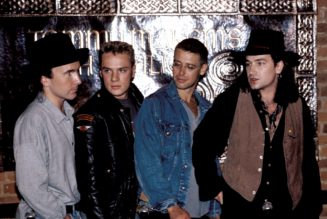

Tagged: A Perfect Circle, anthrax, Bathory, cro-mags, FEATURES, Ghost, Iced Earth, Iron Maiden, Lists, machine head, Megadeth, Nachtmystium, Six Feet Under, venom